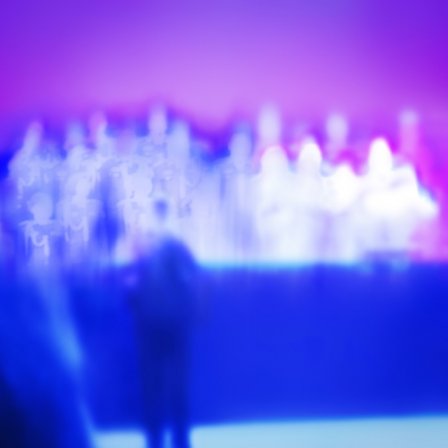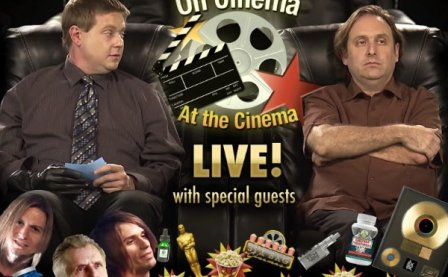Back in 2012, a Florida-based producer named Fredrick M. Cuevas cued an album that wound up on two opposing ends of the critical scale. It was either akin to “the pain of getting your anus waxed” or a “genuine beauty amidst impenetrable difficulty,” depending on your source. Social commentaries concerning the performer at stake might have also skewed public opinion, but either way, Farrah Abraham’s debut album sparked a conversation not only about taste negotiation and the abstraction of pop music, but also about vocal disfiguration through auto-tune to create a conflicting musical aesthetic. It was disaffected and frustrating in its appeal, and even if Cuevas’s corny club beats made for an easy target on the critical spectrum, the vocals were a fascinating distraction while they simultaneously reset the “outsider music” benchmark.
Tim Hecker’s carefully curated compositions rarely (if at all) fall into the “outsider” category, but the processing of vocal sections on his latest album, Love Streams, lies at the heart of these often gentle and fractured recordings. In principle, the distortion of a singer’s voice — especially when it becomes indistinguishable — adds a layer that acts as a mask or an obstruction. If the motive is to distort or alter the meaning of words, then that could well be interpreted as deceit. So when that’s done to achieve a precise aesthetic — as it has been here — how might the intention be construed, particularly under the suggested premise of “Love”? Jóhann Jóhannsson scored this album’s vocal sections, which were provided by the Icelandic Choir Ensemble before they were heavily processed by Hecker, and although the Canadian artist’s stylistic results are worlds apart from Cuevas’s, the consequence of the act draws some interesting parallels.
Ever since the sonovox was used to distort the most instinctive means of communicative expression back in the 1940s, vocal manipulation has existed as a form of instrumentation in its own right. But no album before or after Abraham’s has been quite as poignant or as foul in its giddying use of auto-tune to give the singer new life through prosthetic means, by transforming one of the most natural sources of harmony to create something with alienating presence while also offering honest emotive responses to personal circumstance. As an instrument, that’s what gives auto-tune an edge, so that when artists like Future mesh multiple layers over a dank croon, it can sound both utterly impersonal and completely genuine, both an emotional disfiguration and a sincere projection.
In spite of the snappy taglines that Hecker dropped before the release of Love Streams — “liturgical aesthetics after Yeezus” and “transcendental voice in the age of auto-tune” — the use of vocals across the album are much less dominant than might be expected. It’s the creation of a harmony by other means that exists at the album’s aesthetic core, i.e., the creation of a soundscape that bridges the distance between a vocal utterance and mild distortion in a search for common ground. In the case of Love Streams, that instrumentation is crystalline and angelic, featuring tonal fragments contrasting the foreboding hiss and feedback that are harnessed to darken the mood on tracks like “Collapse Sonata” and “Live Leak Instrumental.” It’s Hecker’s organic harmony to Abraham’s agonized vocal writhing.
Beyond the title, the album feels like an ode to someone or something close. The way that the high frequencies interact with sharp but refined interjections on “Bijie Dream” is a display unto its own, without the focus on vocals. Close your eyes, and it’s the tail of two Siamese fighting fish punching out into a temperate current; there’s no telling if they are dancing, courting, or in the process of eating each other, but the colorful and hypnotic movement of their bodies underwater is like the unpredictably tender trappings of Hecker’s music. And although there is that natural feeling of organic synthesis — the choral fragments are adapted from Josquin Des Prez scores — the interpretation is configured using a method apparently far too detailed for the casual listener (“disfigured through complex programming”), and it’s that disassociation that initially brought My Teenage Dream to mind: is it possible to remain sincere in the use of such stark modification, and what impact does that have on the listener?
Potential clues can be found across Hecker’s back catalog, though there is no need to go back and trace it. For the recording of Love Streams, regular collaborator Kara-Lis Coverdale talked about Hecker’s hand signals while she was recording her segments. She talked about the way he would stand over her and gesticulate during playback, plying the air with an impassioned response that he would conjure from the music. This bodily action and deep human connection is weirdly attributed to an “artificial intelligence-era language,” which hints at chance configuration of the vocal choir’s offerings. But in the context of love, or a kind of love — one that might permit a singer to spill their guts about the most intimate personal matters before their words are rendered incomprehensible — that connection is paramount. I mention this, not only as someone intrigued by the artist’s physical reaction to his own music, but also as someone who feels transported by the weight of these manifestations; through its negotiated path of manipulation and the anti-fetishization of its inspiration, the music reflects so much more than the impulses surrounding interpretations of love to touch on consequences that go beyond the physical act.
Doubt, disbelief, and uncertainty are conjured across Love Streams, both as bludgeoning buildups and tumbling segues. The album’s title doesn’t come across as a casual reference to an emotional state or a romantic gesture; there is an appreciation for paradox and confrontation, signified here in conflicting textures that are singularly subtle and abrasive. Through tackling the repercussions of vocal processing and by demonstrating some of the most profound uses of it, Love Streams gives credence to the act in a way that vilifies the most obscure uses of it, even when the end results yield little more than the evaporated phantoms that we continue to chase in our everyday lives.
More about: Tim Hecker




